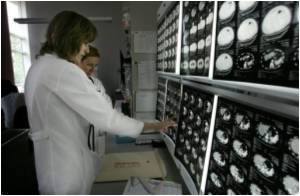
Phase I clinical trials, commenced using KB004, are the first step in a systematic process to determine if a drug might be efficacious in humans.
The monoclonal antibody has been shown to kill certain types of cancerous tumours in a laboratory using human samples.
It is targeted towards EphA3 expressing hematologic malignancies, which are believed to account for about 50 percent of acute leukaemias as well as a number of other human cancers, including a significant proportion of malignant melanomas, brain tumours and lung cancers.
Boyd said the journey from the initial identification of the antibody to the stage of clinical testing has been long but very rewarding.
"The KB004 project has a special place in my heart as it originated in my own lab many years ago. Although it now involves two other research groups in Australia and a U.S. company, there is a sense of nearing the goal I set out to achieve when I first started my research career," he said.
Advertisement
"The initiation of a Phase I clinical trial in patients with acute leukaemia by KaloBios is an important landmark and will hopefully lead to further testing and the ultimate use of this antibody as a treatment. It is highly significant to me that the phase I trial is in leukaemia, the disease that drove me to the initial discovery," said Boyd.
Advertisement
The development of this antibody as anti-cancer therapeutic was a collaboration between Boyd, Prof Andrew Scott from the Ludwig Institute and Associate Prof Martin Lackmann from Monash University, who initiated and lead the translational aspects of this venture.
Source-ANI













